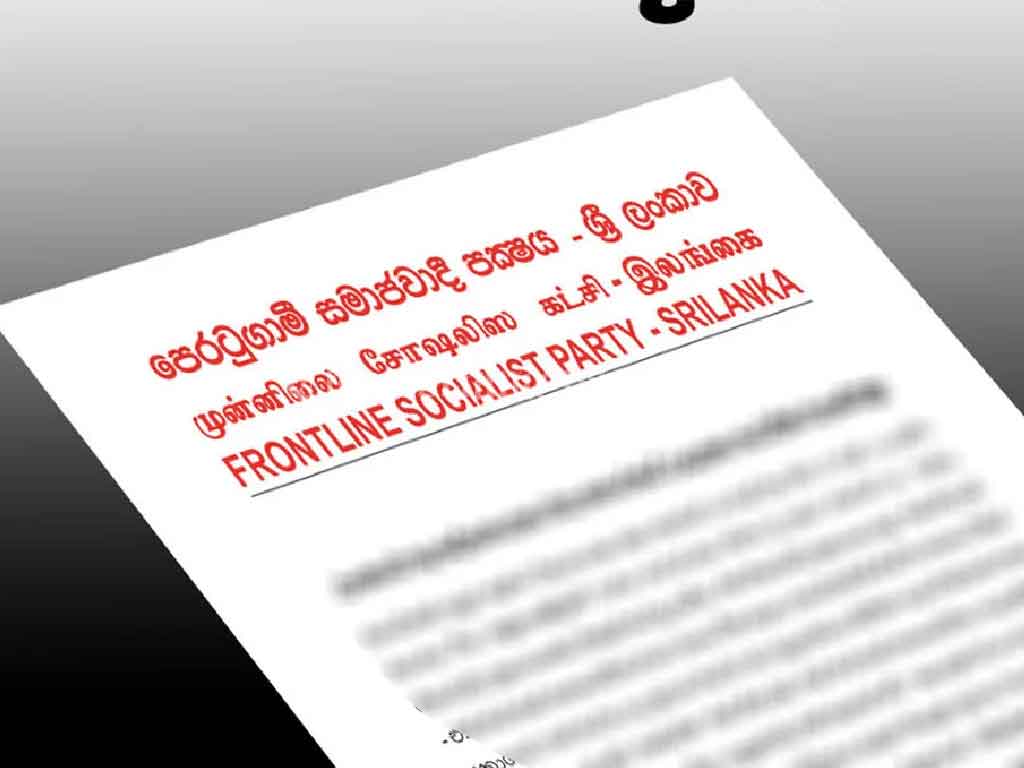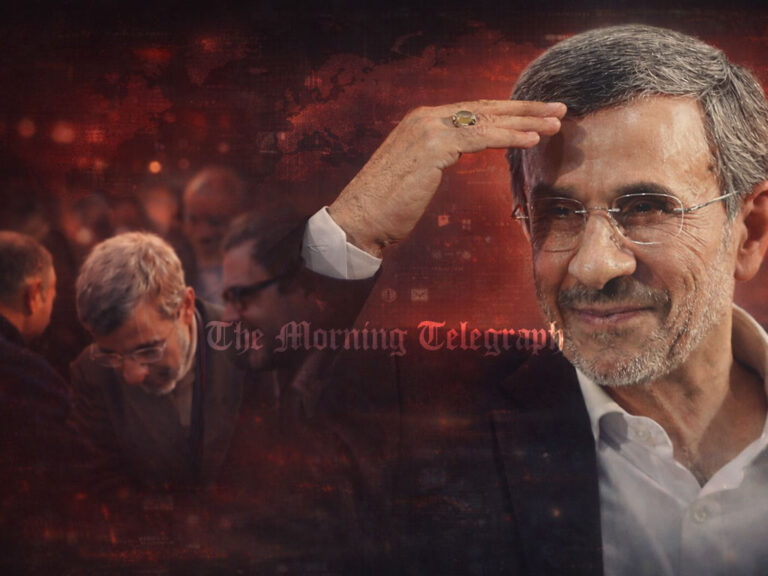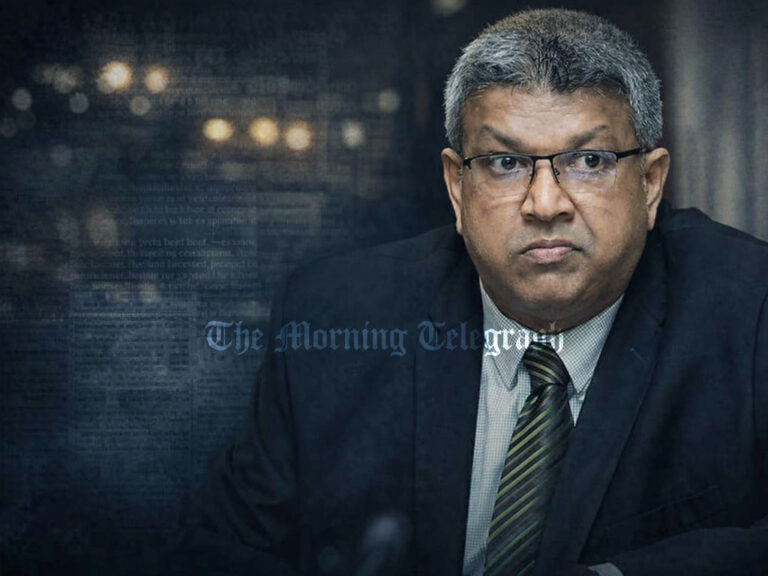
A press release issued by the Frontline Socialist Party is shown here:
Let’s prevent Sri Lanka from falling into a trap of geopolitical power struggle!
President Anura Kumara Dissanayake paid a state visit to the People’s Republic of China from January 14 to 17, 2025, and a joint statement was issued on January 16. The joint statement states that “the two sides agreed to follow the eight major steps announced by President Xi Jinping to support One Belt – One Road cooperation.” It also states that “the two sides signed a One Belt – One Road cooperation plan.” It further stated that the Sri Lankan government agreed to “carry forward all major projects, including the joint development of Colombo Port City and Hambantota Port, make full use of programs such as the Silk Road Workshop, and implement more livelihood programs in Sri Lanka in accordance with the principles of planning, building, and benefiting together.” The One Belt, One Road initiative is not just an economic development program, but also China’s geopolitical strategy in the South China Sea and the Indian Ocean.
The United States is pursuing a program called the “Indo-Pacific Strategy” against China, and it is no secret that this power struggle has created acute tension in the Asian region, including the Indian Ocean region. It cannot be ruled out that it will escalate from an economic and trade war, political and diplomatic confrontation, to an open military conflict. India is supporting the US program as a partner in various security cooperation agreements and QUAD military cooperation. It is subordinate to its ambitions as a regional power. The joint statement issued with India on December 16, 2024, exactly a month before the joint statement with China, demonstrates the current government’s loyalty to India’s strategy in the Indian Ocean and the US program that supports it. When these two statements are studied, it is clear that Sri Lanka is being included in the main geopolitical power struggle in the Indian Ocean region, which also includes Sri Lanka.
Other important agreements that are not in the joint statement issued with China have been reached during the visit. The signing of an agreement to grant approval to the Chinese company ‘Sinopec’ to build an oil refinery in the Hambantota area is the main one. It was a proposed project since the Mahinda Rajapaksa regime and was approved by the successive government of Ranil Wickremesinghe.
The program could not be started so far due to public opposition to it, and the Janatha Vimukthi Peramuna was also a leading critic of the project at that time. The basis of the opposition to this project was, on the one hand, that it would trap Sri Lanka in a geopolitical project centered on the Hambantota Port. On the other hand, the problem posed to Sri Lanka’s energy sovereignty by the ownership of foreign companies in the import, refining, and distribution of oil, which has become a complete monopoly of the Sri Lankan government under the current Petroleum Act. Moreover, despite being said to be an investment, there was no clarity on how Sri Lanka would receive the money. None of those reasons have changed this time either.
Since the Hambantota port has already been in China’s hands for almost a century, the establishment of an oil refinery nearby will mean that Sri Lanka will lose its shipping oil revenue from the Hambantota port. Given that the current government has agreed with India to proceed with the negotiations regarding the project to lay an Indian oil pipeline to Sri Lanka, there is a risk that Sri Lanka will lose its shipping oil revenue not only from the Trincomalee port but also from the Colombo port. This is not just a matter of loss of revenue but also a risk of losing Sri Lanka’s energy sovereignty, and the provision of military facilities in these ports also poses a national security risk. All these agreements show that the North and East are under Indian domination, while the southern province, including Hambantota, is coming under Chinese authority. The fact that both these regional powers are preparing for a strong intervention in Colombo makes this danger even more serious.
We expect the close attention and active intervention of the entire Sri Lankan working class and people on these political dynamics that are developing in a way that puts not only Sri Lanka’s economic sovereignty but also its political autonomy and the security of the people at risk. We believe that the positions taken by the government in the face of the geopolitical contradictions that have been expressed in connection with the President’s visits to India and China are extremely serious. It is clear that a solution cannot be expected from the parliamentary opposition, which has been holding these same positions for a long time. Therefore, we appeal to the Sri Lankan people, including the working people, who have the potential to create alternatives to the economic, political, geopolitical, and military challenges facing Sri Lanka and make them a reality, for an organized intervention.
Central Committee, Frontline Socialist Party




